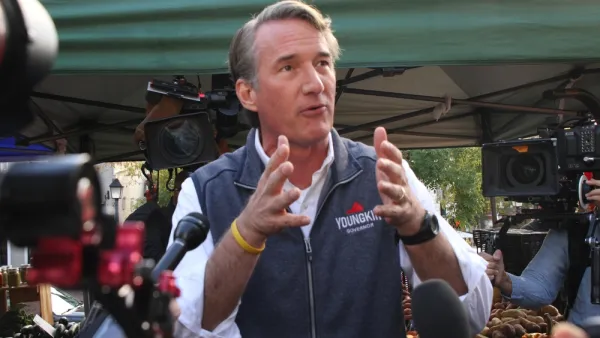Established eight years ago by a bipartisan coalition of Northeast and mid-Atlantic governors, the Regional Greenhouse Gas Initiative was the first cap-and-trade system established in the U.S. It now faces an uncertain future.
Peter Shattuck and Daniel L. Sosland pen an op-ed for The New York Times in which they explain why future of the Regional Greenhouse Gas Initiative, which over its first three years reduced annual emissions by 23 percent and raised $952 million for clean energy programs, is now in question. "The nine states in the initiative are preparing to reset the emissions cap — or the total amount of carbon dioxide that power plants can emit — and some of the proposals would allow power plants to increase the amount of carbon dioxide they dump into the atmosphere."
"Opponents of the initiative, known as R.G.G.I., argue that lower-cost has eliminated the need for the program by reducing the use of dirtier coal and . Growing investments in energy efficiency and renewable electricity have also helped to reduce emissions by cutting demand for electricity from power plants that burn fossil fuels."
"But those developments don’t argue against R.G.G.I., which determines what electricity generators may not do — namely, discharge unlimited quantities of carbon dioxide into the atmosphere. If market forces deliver emissions reductions cheaper and faster than anticipated, then states should lock in that progress with a binding cap to ensure that emissions don’t rise and that incentives for reducing pollution remain."
FULL STORY: Northeast Faces Stark Choice on Climate Pollution

Analysis: Cybertruck Fatality Rate Far Exceeds That of Ford Pinto
The Tesla Cybertruck was recalled seven times last year.

National Parks Layoffs Will Cause Communities to Lose Billions
Thousands of essential park workers were laid off this week, just before the busy spring break season.

Retro-silient?: America’s First “Eco-burb,” The Woodlands Turns 50
A master-planned community north of Houston offers lessons on green infrastructure and resilient design, but falls short of its founder’s lofty affordability and walkability goals.

Test News Post 1
This is a summary

Analysis: Cybertruck Fatality Rate Far Exceeds That of Ford Pinto
The Tesla Cybertruck was recalled seven times last year.

Test News Headline 46
Test for the image on the front page.
Urban Design for Planners 1: Software Tools
This six-course series explores essential urban design concepts using open source software and equips planners with the tools they need to participate fully in the urban design process.
Planning for Universal Design
Learn the tools for implementing Universal Design in planning regulations.
EMC Planning Group, Inc.
Planetizen
Planetizen
Mpact (formerly Rail~Volution)
Great Falls Development Authority, Inc.
HUDs Office of Policy Development and Research
NYU Wagner Graduate School of Public Service




























